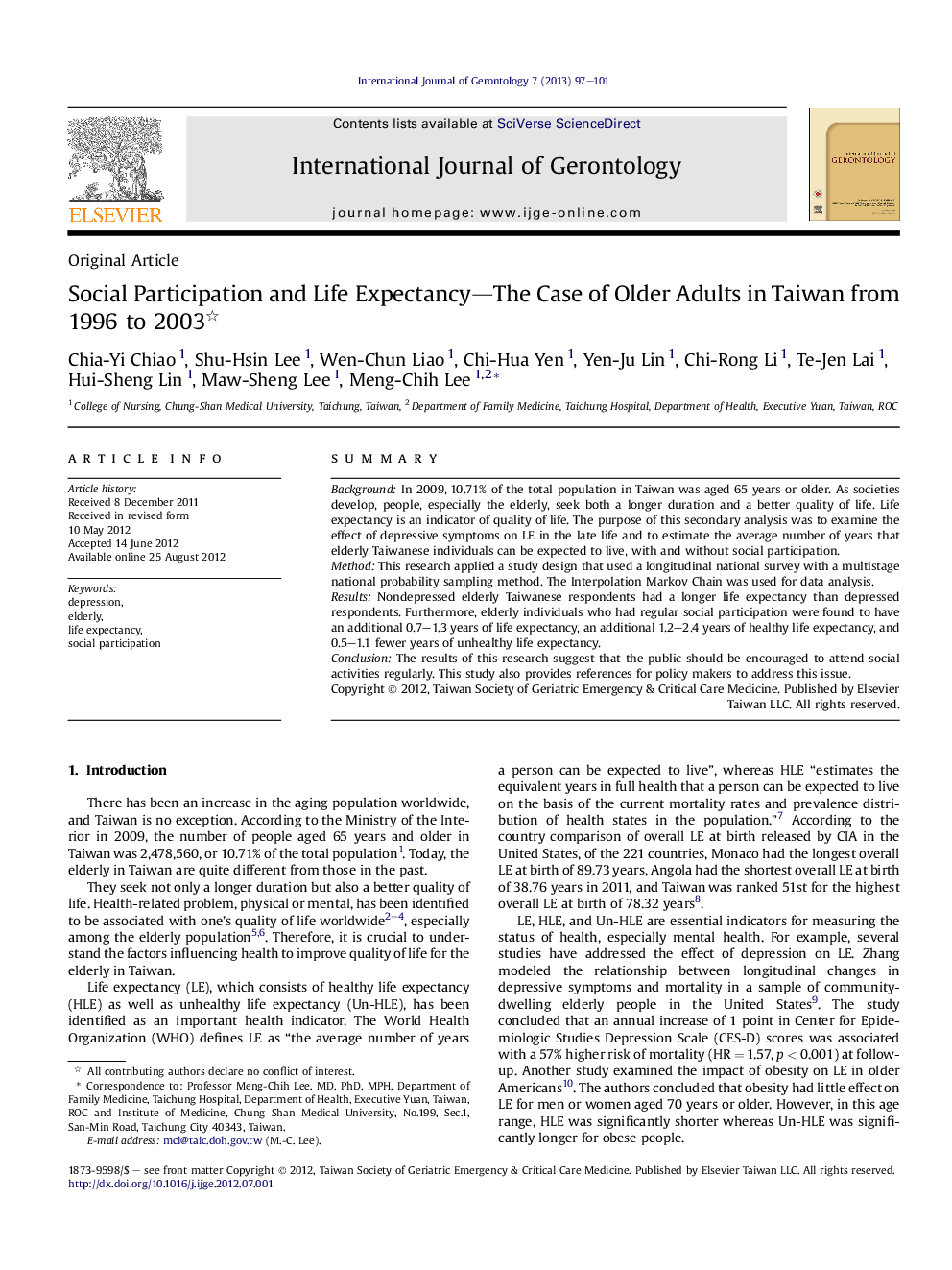| Article ID | Journal | Published Year | Pages | File Type |
|---|---|---|---|---|
| 3325436 | International Journal of Gerontology | 2013 | 5 Pages |
SummaryBackgroundIn 2009, 10.71% of the total population in Taiwan was aged 65 years or older. As societies develop, people, especially the elderly, seek both a longer duration and a better quality of life. Life expectancy is an indicator of quality of life. The purpose of this secondary analysis was to examine the effect of depressive symptoms on LE in the late life and to estimate the average number of years that elderly Taiwanese individuals can be expected to live, with and without social participation.MethodThis research applied a study design that used a longitudinal national survey with a multistage national probability sampling method. The Interpolation Markov Chain was used for data analysis.ResultsNondepressed elderly Taiwanese respondents had a longer life expectancy than depressed respondents. Furthermore, elderly individuals who had regular social participation were found to have an additional 0.7–1.3 years of life expectancy, an additional 1.2–2.4 years of healthy life expectancy, and 0.5–1.1 fewer years of unhealthy life expectancy.ConclusionThe results of this research suggest that the public should be encouraged to attend social activities regularly. This study also provides references for policy makers to address this issue.
